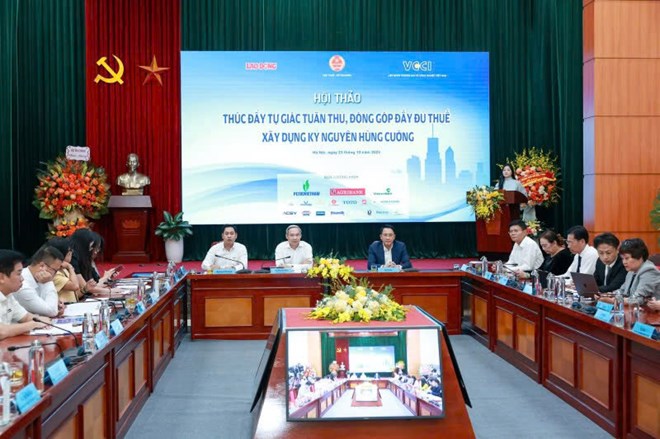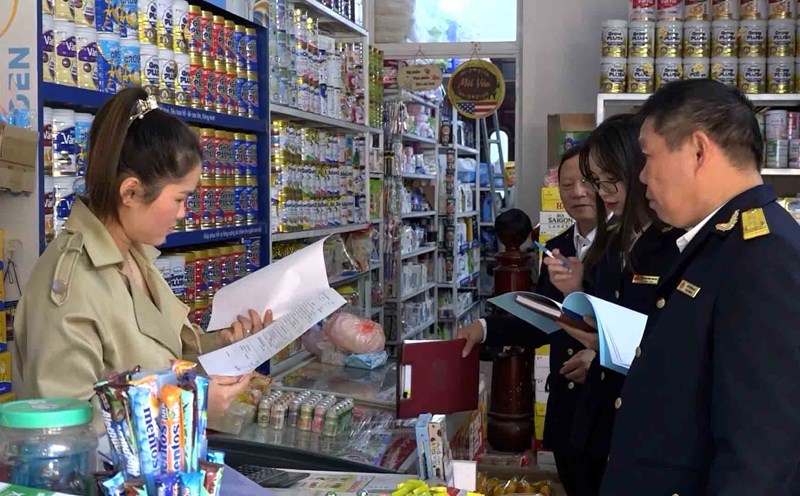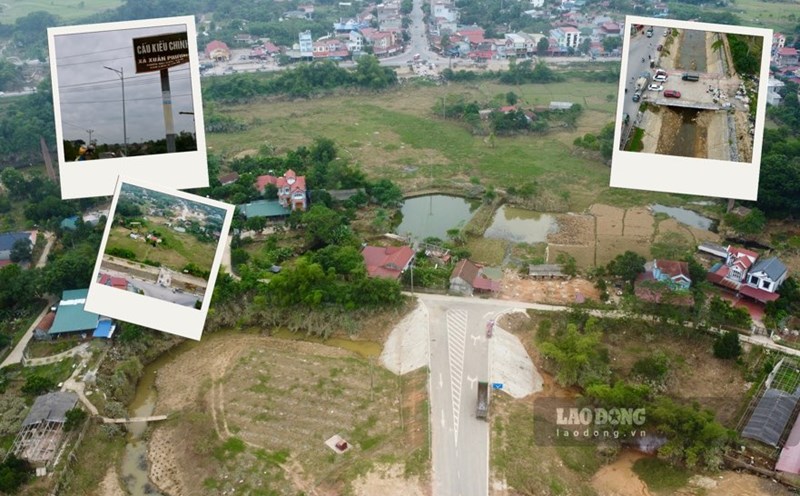Compliance risk management - a pillar of tax reform
At the Workshop "Promoting self-respect and full tax compliance - Building a strong era" held on October 23, 2025, co-chaired by Lao Dong Newspaper and the Tax Department - Ministry of Finance, and co-organized by the Vietnam Federation of Commerce and Industry (VCCI), Mr. Frank Van Brunschot - Senior Economic Expert, Department of Finance (IMF) commented that in the context of rapid economic development today, tax authorities face increasing pressure to collect more with less resources.

According to Frank Van Brunschot, compliance risk management is not just a technical tool. This is a strategic approach that allows tax authorities to allocate resources effectively, targeting non-compliants in a smart way and building trust with taxpayers.
" Compliance risk management means understanding taxpayer behavior, identifying risks, optimizing digital tools and data analysis as well as designing appropriate interventions. It shifts the focus from reaction to proactive participation. And compliance risk management is done in a way that promotes fairness, transparency and efficiency," he said.
Taking examples from countries around the world, the expert drew three important lessons from experience including: Starting from available data, no need to wait for perfect conditions but gradually improving capacity and data quality; Bringing risk management into institutional compliance, applying it in all auditing, inspection and service processes for taxpayers; Increasing transparency and the participation of relevant parties, helping taxpayers understand the operating mechanism and encouraging voluntary compliance.
Urgent actions for Vietnam to improve tax compliance risk management
In fact, in Vietnam, senior economist, Department of Finance (IMF) Frank Van Brunschot said that the process of modernizing tax management is achieving very remarkable results. However, he said that there are three practical actions that Vietnam can take right now.
He said: "First, Vietnam needs to expand compliance risk management beyond the pilot area. Expanding the Tourism Improvement Plan to other areas, applying experience from piloting the tourism sector. Focus on sectors with high tax potential and known compliance risks".
Along with that, Vietnam also needs to strengthen data management. He said that investing in systems allows safe, timely access and integration into taxpayer data. This includes collecting data from third parties, which is essential for effective risk analysis.
"Customs data is very important, because similar risks are likely to occur for high-value taxpayers and high-value commercial transactions," he stressed.
Finally, he believes that building a culture of risk-based thinking is also extremely important, including: training staff at all levels to understand and apply compliance with risk management principles; encouraging innovation, feedback and continuous learning...
The expert added that Vietnam is well-positioned to lead in this field. "With strong leadership, strategic investment and enhanced international cooperation, compliance risk management can become a pillar of tax management reform and move closer to achieving the GDP-on-tax ratio standard of 16% to support sustainable development" - Mr. Frank Van Brunschot expressed.












